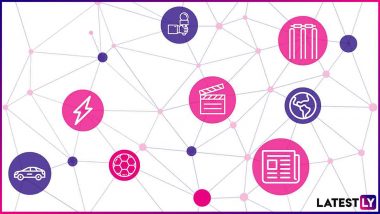New Delhi, Dec 19 (PTI) Markets regulator Sebi has decided to defer the ESG disclosure deadline for value chain partners of listed companies by one year until FY26, giving more time to them to comply with the Business Responsibility and Sustainability Reporting (BRSR) requirements.
Until then, environmental, social and governance (ESG) reporting will remain voluntary instead of the current "comply-and-explain" approach.
The proposal, approved by Sebi's board on Wednesday, is aimed at enhancing ease of doing business for listed companies and their value chain partners in meeting BRSR requirement.
The Sebi's board approved several relaxations and updates for ESG disclosures.
These include "deferring ESG disclosures for value chain", as well as "assessment or assurance" thereof, by one year. Hence, ESG disclosures for value chain shall apply from FY26 (as against the current requirement of FY 2024-25) and "assessment or assurance" thereof shall be applicable from FY 2026-27 (as against the current requirement of FY 2025-26)," Sebi said.
The phased approach by Sebi to ESG reporting strikes the right balance by encouraging immediate action while giving businesses the time they need to adapt, Smitha Shetty, Regional Director, APAC, Achilles Information, said.
This strategy fosters a more inclusive and sustainable business environment, empowering organisations of all sizes to contribute to a greener future for India, she added.
"Availability of value chain information is a recognised challenge all over the world, and this initiative of Sebi grants businesses the necessary time to streamline their preparedness, at the same time allowing a window to encourage their value chain partners to embrace ESG in the right spirit, beyond mere compliance," Dipankar Ghosh, Partner & Leader, Sustainability & ESG, BDO India, said.
A company's value chain includes all activities that add value, from sourcing raw materials and services to distributing and selling products.
It covers both upstream (procurement) and downstream (sales) operations, extending beyond direct activities. This plays a crucial role in the company's sustainability and ESG efforts.
In its statement, Sebi said the board has decided to reduce the scope of value chain to cover the top upstream and downstream partners of a listed entity, individually comprising 2 per cent or more of the listed entity's purchases and sales (by value), respectively.
Further, entities can limit these disclosures to 75 per cent of their total purchases and sales by value.
Sebi has made reporting of previous year data optional for the first year of ESG value chain disclosures. Additionally, a new leadership indicator under Principle 6 of BRSR will mandate companies to disclose green credits generated or procured by the company and its top 10 value chain partners.
The term "assurance" has been replaced with "assessment or assurance". Assessments will be conducted by third parties based on standards developed by the Industry Standards Forum (ISF) in consultation with Sebi. This applies to BRSR Core disclosures from FY25 for listed entities and FY27 for the value chain.
(This is an unedited and auto-generated story from Syndicated News feed, LatestLY Staff may not have modified or edited the content body)













 Quickly
Quickly

















